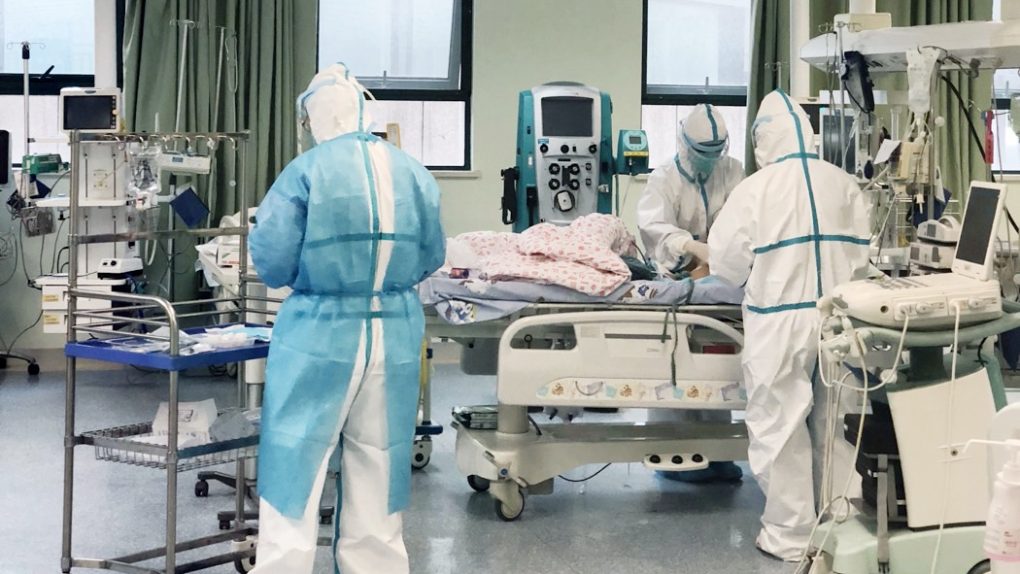- Hospitals are already discussing new resuscitation protocols for critical COVID-19 patients who might experience cardiac arrest as their case worsens.
- Some healthcare professionals are looking at universal do-not-resuscitate orders for coronavirus patients, which could prevent the infection of medical staff and other patients, as well as freeing up staff and conserving precious protective gear.
- Performing CPR on a COVID-19 patient requires a team of doctors and nurses, as well as personal protection equipment, which could delay the response.
- Visit BGR’s homepage for more stories.
We’re less than 10,000 patients away from an incredibly sad milestone for the novel coronavirus: 500,000 confirmed cases. By the time countries around the world finish reporting the stats for Thursday, we will have passed that number by several thousand people. More than 22,000 people died fighting the COVID-19 disease. A staggering 353,000 active cases still need medical attention. That means many of them will require hospitalization or regular checkups at home. Most people who get the new disease might not experience severe symptoms, and most people will recover and develop some immunity against the new virus. But it’s the elderly and people with other health problems who are most likely to experience life-threatening COVID-19 cases. They will need oxygen, ventilators, and an ICU bed. And some of them may go into cardiopulmonary arrest, which turns out to be a huge problem not just for the patient whose heart just stopped, but for the entire team that must perform CPR and for other patients.
Barring a do-not-resuscitate (DNR) order, all hospitals are required to do whatever it takes to save a patient who’s coding. But applying the usual CPR maneuvers to a patient infected with the new coronavirus will be problematic because of the nature of these procedures. When a person codes in a hospital, an entire team rushes over to perform several maneuvers in an effort to restart the heart and stabilize the patient. But a COVID-19 patient needs to be treated differently. He or she could infect the doctors and nurses who are trying to perform CPR and endanger the lives of all the other patients. That’s because droplets containing the virus could spread everywhere in the room during CPR. The virus is highly contagious and can survive for days on surfaces.
That’s not the only problem with COVID-19 patients who are coding. Doctors and nurses will have to get into protective equipment as fast as possible in order to avoid infection, before hurrying to save the patient. By the time they do make it to someone coding, that person might be beyond saving. Also, the more COVID-19 patients go through heart arrest, the more resources will be consumed — and hospitals are quickly running out of protective gear.
That’s why several hospitals in the US are already considering universal do-not-resuscitate orders, The Washington Post reports, which could simplify logistics, especially in hot zones where hospitals have to deal with an increasing number of severe COVID-19 cases.
Northwestern Memorial Hospital in Chicago is one example where a blanket DNR order for COVID-19 is under consideration. The hospital would still have to seek help from Illinois Gov. J.B. Pritzker on the matter to see whether state law can permit such a policy shift. Richard Wunderink, one of the hospital’s intensive-care medical directors, said the medical condition of critical COVID-19 patients usually experiences steady declines, not sudden crashes. That gave doctors time to discuss with families the risk of resuscitation and how the need for using protective gear reduces the chances of saving someone’s life. Many family members have agreed to sign DNR orders.
George Washington University Hospital has had similar conversations, but they’re still resuscitating all COVID-19 patients for the time being. Their solution is to use a plastic sheet to create a barrier between the patient and the doctors. They have also been reducing the number of people attending to a patient who’s coding.
The report notes that other hospitals, including Atrium Health in the Carolinas, Geisinger in Pennsylvania, and regional Kaiser Permanente networks are also looking at guidelines that could allow doctors to override the wishes of the patient or family. But they would stop short of imposing a DNR for all coronavirus patients. Doing nothing, on the other hand, goes against everything medical professionals have been taught. But hospitals might soon have to devise clear policies as to how to deal with CPR on critical coronavirus patients while ensuring the first responders don’t get infected.
Many hospitals are considering a new protocol for deciding whether or not to resuscitate a patient, devised by bioethicist Scott Halpern at the University of Pennsylvania. He says that two physicians, including the one taking care of the patient and one who isn’t, should sign off on do-not-resuscitate orders. They’d have to document the reasoning and the family has to be informed but isn’t required to agree.
If there is one key takeaway in all of this, it’s that everyone can help hospitals not have to make such drastic decisions. The more we stay at home and avoid contact with others, the faster we’ll flatten the curve and give doctors and nurses more time to save their patients, including people who will eventually code.








